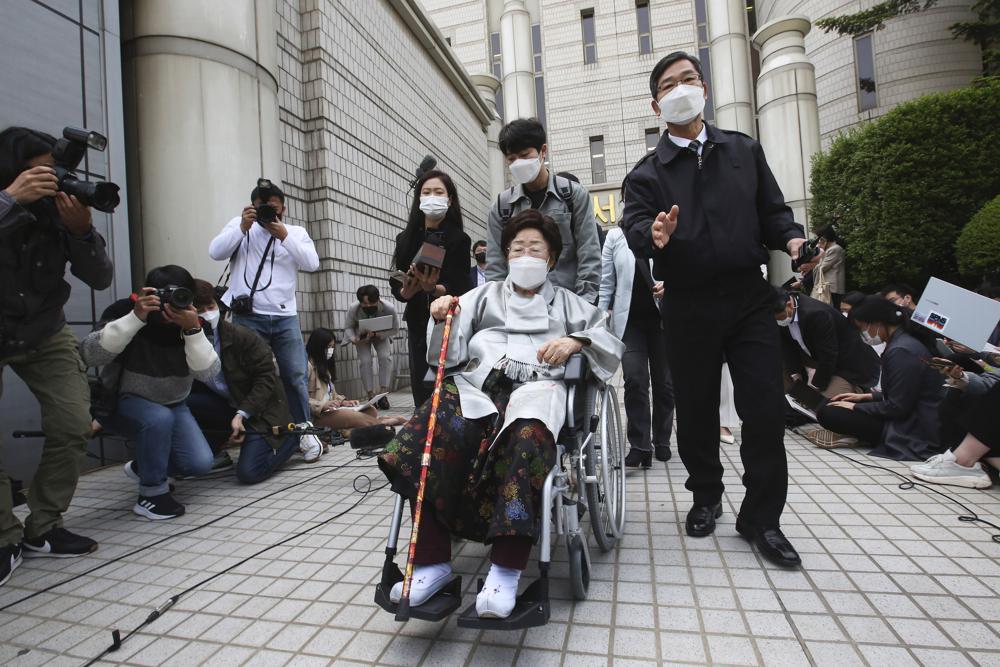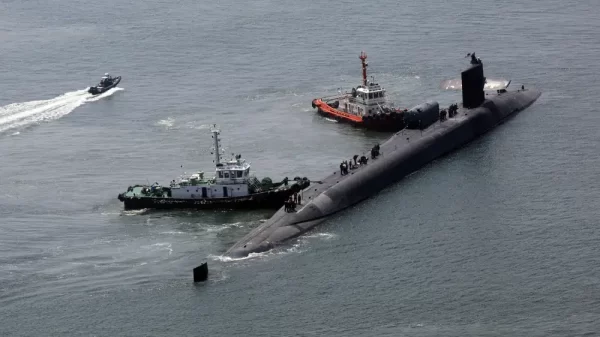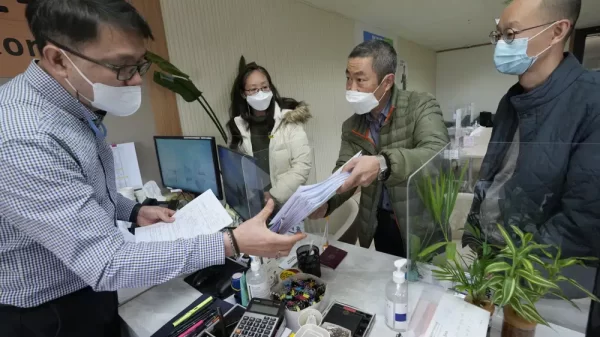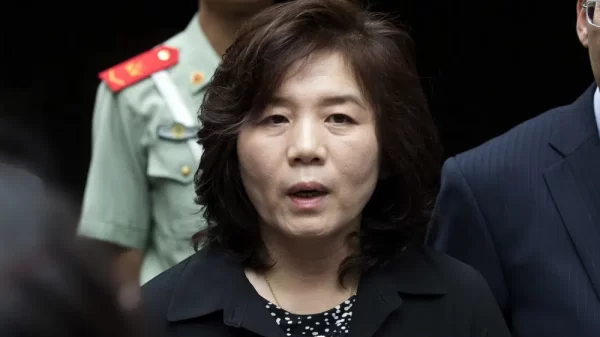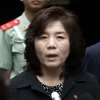Former South Korean comfort woman Lee Yong-soo in a wheelchair leaves the Seoul Central District Court in Seoul, South Korea, Wednesday, April 21, 2021. A South Korean court on Wednesday rejected a…
SEOUL, South Korea (AP) — A South Korean court on Wednesday rejected a claim by victims of Japanese wartime sexual slavery and their relatives who sought compensation from Japan’s government.
The Seoul Central District Court based its decision on diplomatic considerations and principles of international law that grant countries immunity from the jurisdiction of foreign courts. This appeared to align with the position maintained by Tokyo, which boycotted the court proceedings and insists all wartime compensation issues were settled under a 1965 treaty normalizing relations between the two nations.
Activists representing sexual slavery victims denounced the decision and said the Seoul Central District Court was ignoring their struggle to restore the women’s honor and dignity. They said in a statement that the plaintiffs would appeal.
It wasn’t immediately clear how the ruling would affect relations between the estranged U.S. allies. Their feud escalated in public for years over issues stemming from Japan’s brutal occupation of Korea through end of World War II, before receiving pressure from the Biden administration to mend ties and coordinate action in the face of threats from China and North Korea.
Japanese Chief Cabinet Secretary Katunobu Kato noted the decision conflicted with a previous ruling in a separate case that found the Japanese government responsible for compensating sexual slavery victims.
Kato said he wouldn’t comment on the new ruling before examining the details more closely, but added that Tokyo’s stance on the sexual slavery issue remains unchanged. He said the previous ruling violated international law and was unacceptable.
“Japan continues to strongly ask South Korea to take appropriate steps in order to correct the state of international violation,” he said.
The 20 plaintiffs, who sued the Japanese government in 2016, include four women who were forced to work at Japanese military brothels during World War II and relatives of other women who have since died.
The court said international law and previous rulings from South Korea’s Supreme Court make it clear that foreign governments should be immune from civil damage suits in respect of their sovereignty.
“If we go against the (principles) of current customary international law regarding the immunity of states and deny immunity for the defendant, a diplomatic clash with the defendant will become unavoidable following the verdict and the process to forcibly execute it,” the court said.
The court also noted that the countries never officially withdrew from a 2015 agreement that attempted to settle their long impasse over the issue, and that some Korean victims accepted payments from a Japanese-funded foundation created by the deal. This shows it’s possible for the countries to settle their dispute diplomatically, the court said.
South Korea’s Foreign Ministry said it wouldn’t make specific comments on Wednesday’s ruling before analyzing its details. The ministry urged Japan to act in line with its past apologies, including a landmark 1993 statement in which it first acknowledged forcing women into military brothels.
One of the plaintiffs — 92-year-old Lee Yong-soo — has been campaigning for South Korea and Japan to settle the sexual slavery issue by seeking a judgment from the U.N.’s International Court of Justice.
She says it has become clear the issue cannot be resolved through bilateral talks or rulings by South Korean courts that have been repeatedly rejected by the Japanese government, and that the friction between the governments has hurt friendships between civilians.
“Regardless of the verdict, we will go to the International Court of Justice,” she told reporters after Wednesday’s ruling.
The same court in a largely symbolic ruling in January called for the Japanese government to give 100 million won ($89,000) each to a separate group of 12 women who sued in 2013 over their wartime suffering as sex slaves.
Tens of thousands of women across Japanese-occupied Asia and the Pacific were moved to front-line brothels used by the Japanese military. About 240 South Korean women registered with the government as victims of sexual slavery by Japan’s wartime military — only 15 of whom are still alive.
Japan insists compensation issues were settled under the 1965 treaty, in which Tokyo provided $500 million in economic assistance to Seoul.
Amnesty International in a statement called Wednesday’s ruling a “major disappointment that fails to deliver justice to the remaining survivors of this military slavery system and to those who suffered these atrocities before and during World War II but had already passed away, as well as their families.”
Referring to the January court ruling, Arnold Fang, Amnesty International’s East Asia researcher, said, “What was a landmark victory for the survivors after an overly long wait is again now being called into question.”
The 2015 deal was widely unpopular among South Koreans, who accused Tokyo of trying to silence the victims with money. After taking office in 2017, South Korean President Moon Jae-in said the deal negotiated by his conservative predecessor lacked legitimacy because officials failed to properly communicate with victims before reaching it, and took steps to dissolve the Japanese-funded foundation.
In a major shift in tone, Moon said in a news conference in January that he recognizes the 2015 deal as a valid agreement between governments. He also described that month’s ruling on the sexual slavery survivors as “honestly a complicating” development for Seoul’s efforts to improve bilateral relations.
Some analysts say Moon may have felt that American pressure to reconcile with Japan was coming and wanted to appear as a reasonable ally by extending Tokyo an olive branch. In a speech last month, Moon said his government was eager to build “future-oriented” ties with Tokyo.
President Joe Biden has been stepping up efforts to bolster three-way cooperation with the U.S. regional allies, which declined under former President Donald Trump’s “America first” approach, to coordinate action in face of China’s growing influence and North Korea’s nuclear threat.
Besides the impasse over sexual slavery, South Korea and Japan have feuded over South Korean court rulings that called for Japanese companies to compensate Koreans who were forced to work in Japanese factories during the war.
Associated Press journalist Mari Yamaguchi in Tokyo contributed to this report.
Copyright 2020 Associated Press. All rights reserved.




















